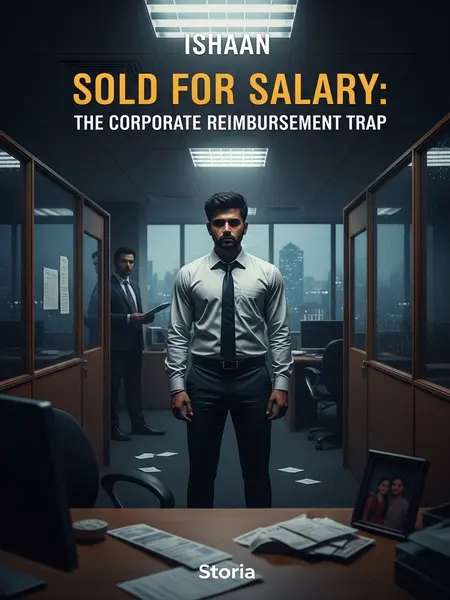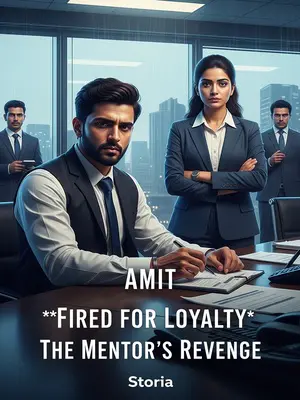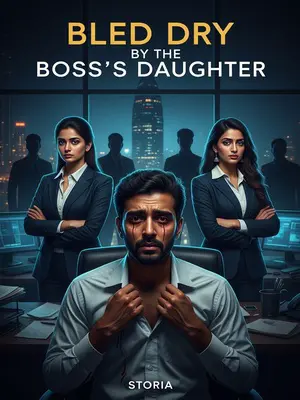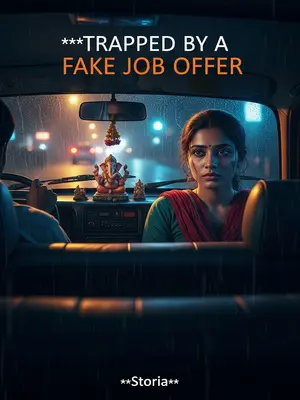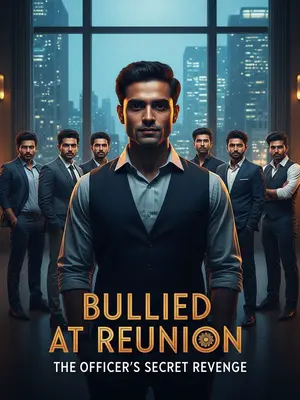Chapter 2: The Never-Ending Rejection
I’d spent months travelling for a company project worth crores. Now, just as we were about to wrap things up, suddenly, my travel expenses couldn’t be reimbursed.
Even now, I could picture those endless meetings in glassy conference rooms, the oily samosas offered by the client, the late-night rides in rickety Ola cabs, and the overpowering smell of overbrewed office chai. Crores for them, but my wallet was begging for mercy.
I tried to catch the accounts department during a brief visit back to the office, but they rejected me on the spot.
No sympathy—just the tap-tap of calculators and the crinkle of cellophane as someone unwrapped a Britannia biscuit. It was like I didn’t even exist.
“Reimbursements are only processed during the last week of each month.”
Priya didn’t even look up. The wall calendar behind her desk had the dates circled in bright red marker, warning: don’t even try.
But at the end of every month, I was always at project summary meetings with the client. How was I supposed to be at the company?
Whoever made these rules never cared about ground realities. My attendance sheet looked like a Rajdhani timetable—always moving, never at home base.
So I’d rush back at the start of the last week to submit my claims, then dash off again. And, of course, my accommodation and meal costs always exceeded the so-called standard.
My backpack was always heavy, stuffed with bills, hotel receipts, and tattered train tickets—now starting to smell of sweat and dust. I’d learned to keep my wallet zipped in my front pocket—Mumbai locals had taught me well.
Priya just kept a poker face, repeating the same thing: as long as the boss signs, she’d process my reimbursement. Sometimes she’d sigh, sometimes she’d say it with a smirk, but the answer never changed.
In every Indian office, "boss ka sign lao" is like a magic mantra—except most times, the magic fails.
So I brought my claim form to the boss and tried to explain.
I stood awkwardly at the door, hoping to catch his eye as he swiped through his phone. "Sir, ek minute?" I asked, barely above a whisper, my heart pounding.
“Boss, it’s impossible to find a hotel in Mumbai for ₹1,200 a night.”
He didn’t look convinced. He gave me a thin smile, like a tuition teacher who knows the kid is lying about homework.
“You haven’t even tried. How do you know it’s ‘impossible’?”
The word ‘impossible’ hung in the air, making me feel like a schoolboy caught cheating in a maths test.
“Even OYO is ₹3,000 a night in Mumbai. I found a tiny guesthouse for ₹1,500—already as cheap as it gets. If you don’t believe me, check online.”
My voice was rising now, almost pleading. The AC in his cabin was on full blast, but sweat pricked my forehead.
The boss sneered, pulled out his phone, tapped around, and found a few backpacker hostels—₹500 a night. The pride on his face was like he’d unearthed hidden treasure in Andheri.
“See? Want me to book one for you?”
He waggled his eyebrows. "Socho, socho. Young people like you should enjoy adventure, Ishaan."
“That’s a hostel, boss. Eight people to a room.”
I pictured myself working on client files while college backpackers snored and charged phones. My heart sank.
“So what? If others can stay there, why can’t you?”
He leaned back, folding his arms like he’d just won a bet. The watchman outside coughed, as if agreeing.
“I need to work late. With eight people in the room, how am I supposed to get anything done? And what if my personal stuff or the company laptop gets stolen?”
I remembered my mother’s warning: "Bag sambhalke rakhna, Mumbai mein sab kuch hota hai."
Maybe he saw my point, but he quickly searched again and found OYOs way out in Panvel and Vasai—technically Mumbai, but only ₹1,200 a night.
He spun the screen towards me, grinning like he’d found a loophole in GST.
“Boss, those are on the outskirts. I’d have to take the local train just to get to the client.”
I could almost feel the crush of the Virar Fast, smell the sweat and Axe of ten thousand office-goers. Panvel to Churchgate—he had no clue.
He stared at the map. “No, there’s local trains. Just get up earlier, problem solved.”
Like everything here, the answer was always "adjust kar lo".
I swallowed my anger, gripping my chair so hard my knuckles turned white. My father’s words echoed: "Kaam ki baat shanti se karo, beta."
“And the ₹200 meal allowance isn’t enough. In Mumbai, even a plate of pav bhaji is nearly ₹200.”
I felt ridiculous, haggling over meal money. But this was survival, not greed.
“Ishaan, let me say something. If you weren’t on a business trip, wouldn’t you still pay for your own meals? Why do you think you shouldn’t have to pay just because you’re travelling for work? The ₹200 I give you is a perk—enough for a Swiggy lunch box, isn’t it?”
He adjusted his Ray-Ban glasses, looking at me like he was doing me a favour. I remembered my last Swiggy lunch box—cold rice, watery dal, and one lonely aloo.
I was speechless. And on top of that, the company made us take old locals—the business travel trilogy: local trains, backpacker hostels, and Swiggy lunches.
I thought of my friends with fancy IT jobs, travelling by cab, posting airport check-ins on Instagram. Wah, what a life. And here I was, becoming the face of "corporate struggle" memes.
Whoever wants to go on these trips can go.
I imagined putting up my own notice: "For sale: One corporate soul, slightly used, hungry, and broke."
Looking at the boss’s shameless face, I knew there was no way he’d give me the money. Fine. By company rates, I could still get over ₹40,000 reimbursed. I’d take that first—at this point, even a cup of chai felt like a luxury.
I could almost hear my mother’s voice: "Beta, jo bhi ho sake, apna paisa wapas leke aa."
But even when I was willing to take the loss, accounts still wouldn’t give me a single rupee.
At this point, it felt like I was stuck in a never-ending TV serial where the hero never gets a break.
I stared at the ink drying on the boss’s signature, wondering if my dignity would ever recover.
